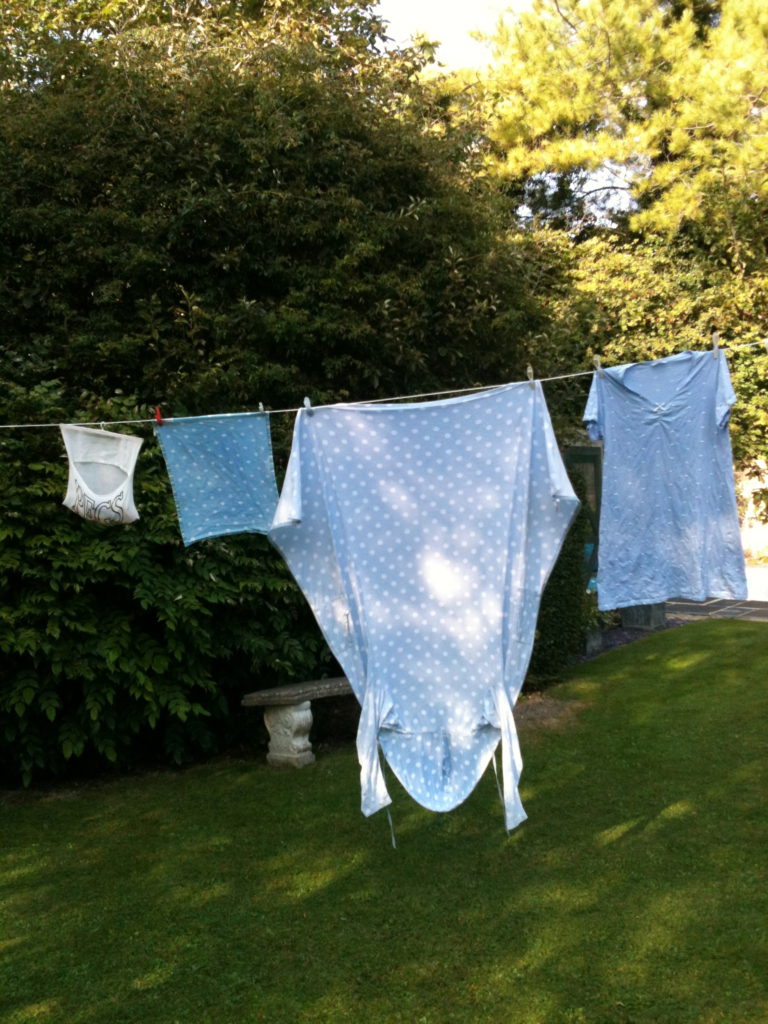Fast forward to Autumn 2011. I was working at home that day. The phone rang. My friend Catherine’s beloved gentle Australian tones: ‘Have you seen the email?’ I rushed to open it and there it was: the offer of voluntary redundancy. I ran out into the garden shouting ‘freedom!’
I imagined this would be the start of what Annie Ernaux, my French writer friend once called ‘the long summer holidays of life’, that I would garden and write and read and see friends. My life would be transformed – on sunny days I would not be locked in meeting rooms or my gloomy office with the view of the brick wall, there would be no more schlepping back and forth between London and home, no more deadlines, no more targets, no more research assessment exercises. I had no hesitation in applying, and my certainty and joy seemed contagious – Catherine and another close colleague decided to go too. It felt like getting out of school in the middle of term. The leaving events and presents added to the party feeling.
In the first few months we would phone each other regularly, delighting in our new decadence – ‘It’s 3pm and I’m not even dressed yet’, ‘I spent all day yesterday reading a novel in bed’ – and our new domesticity – cleaning out cupboards, putting old photographs into albums, cooking from recipes.
We decided that we needed a whole new wardrobe – clothes that would suit our new leisurely life, but would still allow us to answer the door without embarrassment. I went to Marks and bought two dressing-gowns with hoods and zips – one pale blue, one purplish brown, both with white spots. Comfortable garments, if a little too obviously nightwear to fulfill the door answering requirements. But I liked them because there was something reminiscent of the 1950s in their spot design. The dressing-gowns reminded me of a game I had played with a friend at Primary School. We played the game every day, and because of that called it ‘the ordinary game’. In this game, we each had two little girls, who we dressed each morning in matching dresses – perhaps a daisy print, one pink one blue, or stripes, or spots.
The ordinary game was no doubt a template for life in the feminine, a kind of idealised vision of our mothers’ lives, as they laboured to dress us nicely in cotton frocks and white sandals and socks. My life had not followed the template, and needless to say, retirement didn’t quite work out as planned either. Arthritis stalled my gardening ambitions, and after only a year I could not resist taking a part-time job, which took up more and more time, even if I did much of the work at home, in the dressing-gown. Just keeping body and soul together seemed to require ever more work: eating seven portions of fruit and veg a day, doing exercises to mobilise the spine, Pilates class, swimming. We had to pay someone to clean the house, and someone else to keep the garden under control.
In the evenings, the dressing-gowns provided a kind of solace for the recalcitrant body; their softness wrapped around the aching joints was comforting, and donning them a signal that I could stop trying to be mobile, to do stuff as if nothing was wrong. The dressing gowns were a resting place, like a shroud, but not exactly, not quite yet.
My repose was sometimes interrupted, not just by the part-time job, but by a crisis in the lives of my elderly parents. In a frenzy of anxiety I would temporarily abandon my beautiful home, cultural pursuits and friends and partner, in favour of a necessary exile in the house I grew up in. When I was there I could not believe that my other life existed; I was temporarily imprisoned in the routines of late old age, in a house without books, or Radio 4, or olive oil, or a power shower. I would plan to stay three nights, but make my escape after only two, consulting the Virgin trains timetable as if it had magical powers, terrified that the taxi would not come, the trains would not run, and that I would be marooned in my original home forever. In the train I would alternate between relief and joy that I had escaped, and sorrow over my parents’ decline, the limitations of their lives.
On those train journeys another phrase from Annie Ernaux came to mind – ‘Now I really am a middle-class woman’. In the home that had once been my world I was cut off from everything I cared about, except my parents themselves, and my family of origin. With them, especially with my mother, there were moments of great intimacy, but this could no longer sustain me in the way it once had.
So I would rush home, to joyous reunion with my bourgeois life. In the dressing gown, in the safe space of my own room I could imagine the little girl who had seen her future in pastel shades, who had dreamt of a daughter wearing a pale blue dress with white spots.

Leave a Reply